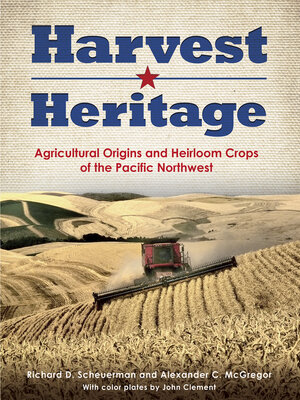Harvest Heritage
ebook ∣ Agricultural Origins and Heirloom Crops of the Pacific Northwest
By Richard D. Scheuerman

Sign up to save your library
With an OverDrive account, you can save your favorite libraries for at-a-glance information about availability. Find out more about OverDrive accounts.
Find this title in Libby, the library reading app by OverDrive.



Search for a digital library with this title
Title found at these libraries:
| Library Name | Distance |
|---|---|
| Loading... |
Using imported heirloom grains and fruits, Spanish explorers, fur traders, missionaries, and some Native Americans planted subsistence gardens in the Pacific Northwest. After immigration surged in 1843, it took a surprisingly short time for the region's fertile lands to become a commercial agricultural powerhouse.
Demand for food exploded with the industrial revolution as well as the urbanization of Europe and eastern America, and the doors of international export opened wide. Agribusiness expanded to meet the need.
By 1890, advancements in mechanization, seed quality, irrigation, and sustainable practices had spurred a farming boom. Columbia Basin irrigation and the development of synthetic fertilizers, as well as Cooperative Extension efforts and impressive work by agricultural researchers greatly boosted regional production. Harvest Heritage explores the people, history, and major influences that shaped and transformed the Pacific Northwest's flourishing agrarian economy.







